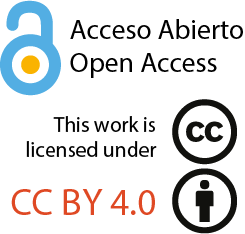Sobre la revista
 Historia de la revista
Historia de la revista
En el año 1981, la Asociación Paleontológica Argentina (APA) publicaba el primer número de la Publicación Especial, revista no periódica, dedicada a publicar contribuciones de reuniones científicas (congresos, simposios y jornadas) y compilaciones de temáticas particulares. El último número de la Publicación Especial (Nº 14) salió en el año 2014.
A partir de 2015, la Comisión Directiva de la APA decidió relanzar la Publicación Especial de la Asociación Paleontológica Argentina, pero implementando una serie de cambios en su formato y periodicidad con el objetivo de promover la publicación de trabajos científicos. La revista, denominada ahora Publicación Electrónica de la Asociación Paleontológica Argentina (PE-APA) es una revista periódica, gratuita y de formato exclusivamente electrónico, que continua publicando volúmenes sobre temáticas particulares, pero además publica artículos regulares. Cuenta con un Comité Editor integrado por especialistas nacionales y del exterior y ha ampliado su enfoque y alcances.
 Objetivos y Alcance
Objetivos y Alcance
PE-APA publica trabajos científicos originales, en español o inglés, con un amplio espectro dentro de la paleontología, incluyendo anatomía, sistemática, taxonomía, filogenia, paleobiología, paleoecología, paleobiogeografía, bioestratigrafía, tafonomía y trabajos de técnicas en paleontología. Acepta también manuscritos filosóficos e históricos si los mismos están estrechamente vinculados a la Paleontología. PE-APA continúa además con la publicación de Volúmenes Temáticos dedicados al desarrollo de una temática particular, incluyendo la publicación de trabajos completos de eventos científicos (congresos, simposios, jornadas, etc.).
 Proceso de revisión por pares
Proceso de revisión por pares
Los trabajos serán evaluados en base a las opiniones de al menos dos revisores externos. El modo predeterminado de revisión en PE-APA es simple ciego (los-as revisores-as son anónimos-as).
Los-as revisores-as solo tienen acceso al manuscrito enviado una vez que han aceptado la invitación de revisión.
Normalmente, los-as revisores-as tienen 2 semanas para aceptar o rechazar la invitación y 4 semanas para realizar la revisión.
Recomendamos a los-as revisores-as que sigan la Guía Éticas para la revisión por pares de COPE.
 Política de Acceso Abierto
Política de Acceso Abierto
PE-APA provee acceso libre inmediato a su contenido, lo cual implica disponibilidad gratuita en la Internet pública para que cualquier persona la pueda leer, descargar, copiar, distribuir, o imprimir.
PE-APA es completamente gratis: no se requiere pago para publicar artículos o para acceder a los mismos.
 Política de almacenamiento
Política de almacenamiento
PE-APA archiva todos los artículos publicados desde 2015 en adelante en el Internet Archive, como también todos los artículos en LOCKSS y CLOCKSS a través del sistema OJS.
Estamos trabajando para ampliar aún más nuestra política de almacenamiento y en un futuro próximo estarán disponibles más opciones.
PE-APA está indexada en: Núcleo Básico de Revistas Científicas Argentinas, DOAJ, LATINDEX, REDIB, PERIODICA, SCOPUS, SCIMAGO, Google Scholar.
De permite y se alienta a quienes publican en PE-APA a depositar todas las versiones de su trabajo (Preprint o Manuscrito enviado, Postprint o Manuscrito aceptado, Artículo Publicado o la versión de registro) en cualquier repositorio institucional o temático, en sus páginas personales, y en Redes Sociales académicas. Al hacerlo, se debe mencionar la fuente original, y se debe proporcionar un enlace a la versión publicada con DOI cuando corresponda (es decir, para el Artículo Publicado). Actualmente estamos en proceso de registrar estas políticas en Sherpa Romeo, un repositorio online de las políticas de acceso abierto de publishers internacionales.
Nos esforzamos por cumplir con la Iniciativa de Citas Abiertas: nuestro sitio web y los metadatos de los artículos muestran las referencias citadas de forma abierta, estructurada y separable, y nos adherimos automáticamente a las herramientas Cited-by y Open Citations de CrossRef. (a partir del marzo 2022; estamos agregando de forma intermitente todos los artículos publicados a partir del 2015 también).
 Frecuencia de Publicación
Frecuencia de Publicación
PE-APA publica dos números al año. Los artículos regulares se publican de forma continua tan pronto como estén listos y se incluyen en el numero vigente en el momento.
 Código de ética
Código de ética
La APA, como editorial responsable de PE-APA (y de su otra publicación, Ameghiniana) adhiere al Código de ética y prácticas inapropiadas en publicación del Committee on Publication Ethics COPE's Best Practice Guidelines (https://publicationethics.org) y espera que autores/as, revisores/as y editores/as adhieran a estos parámetros de comportamiento ético.















